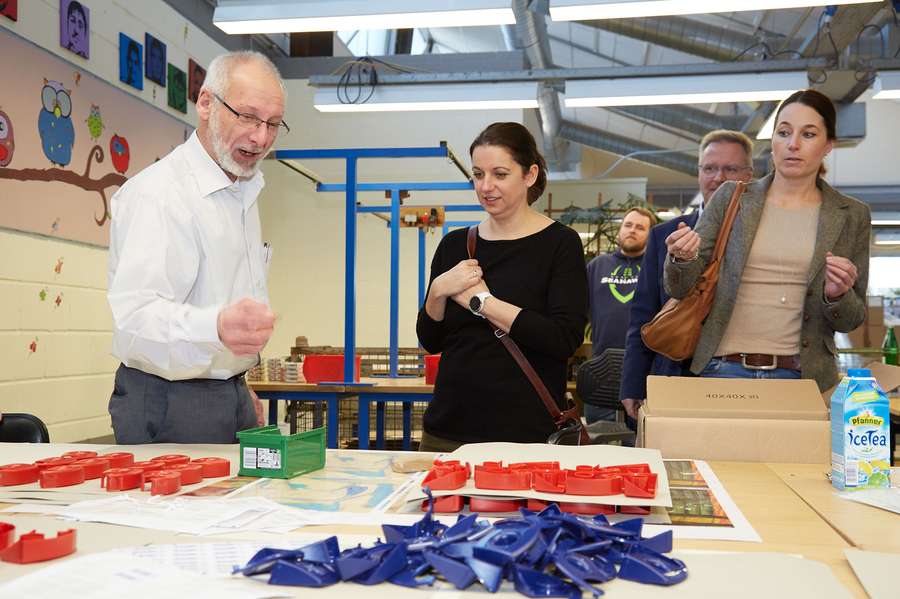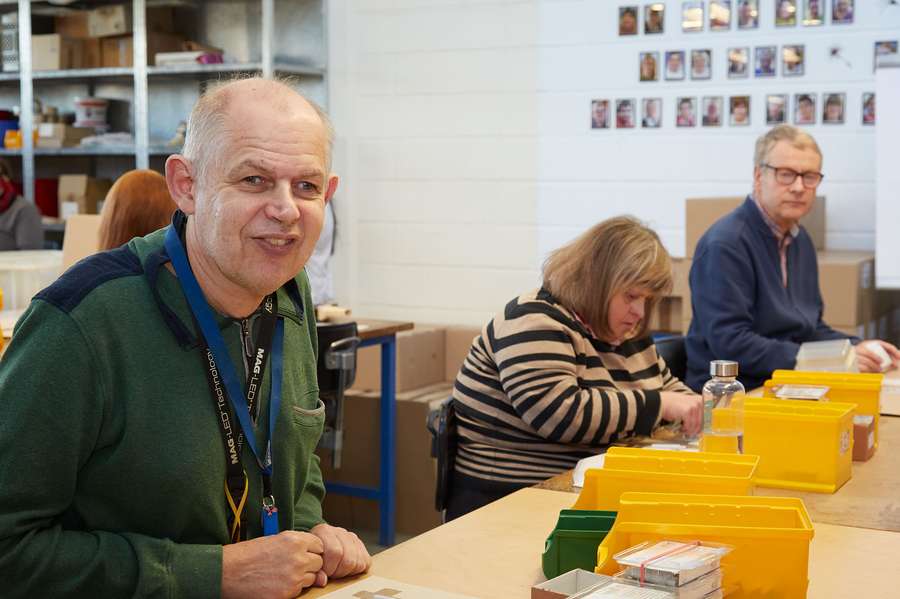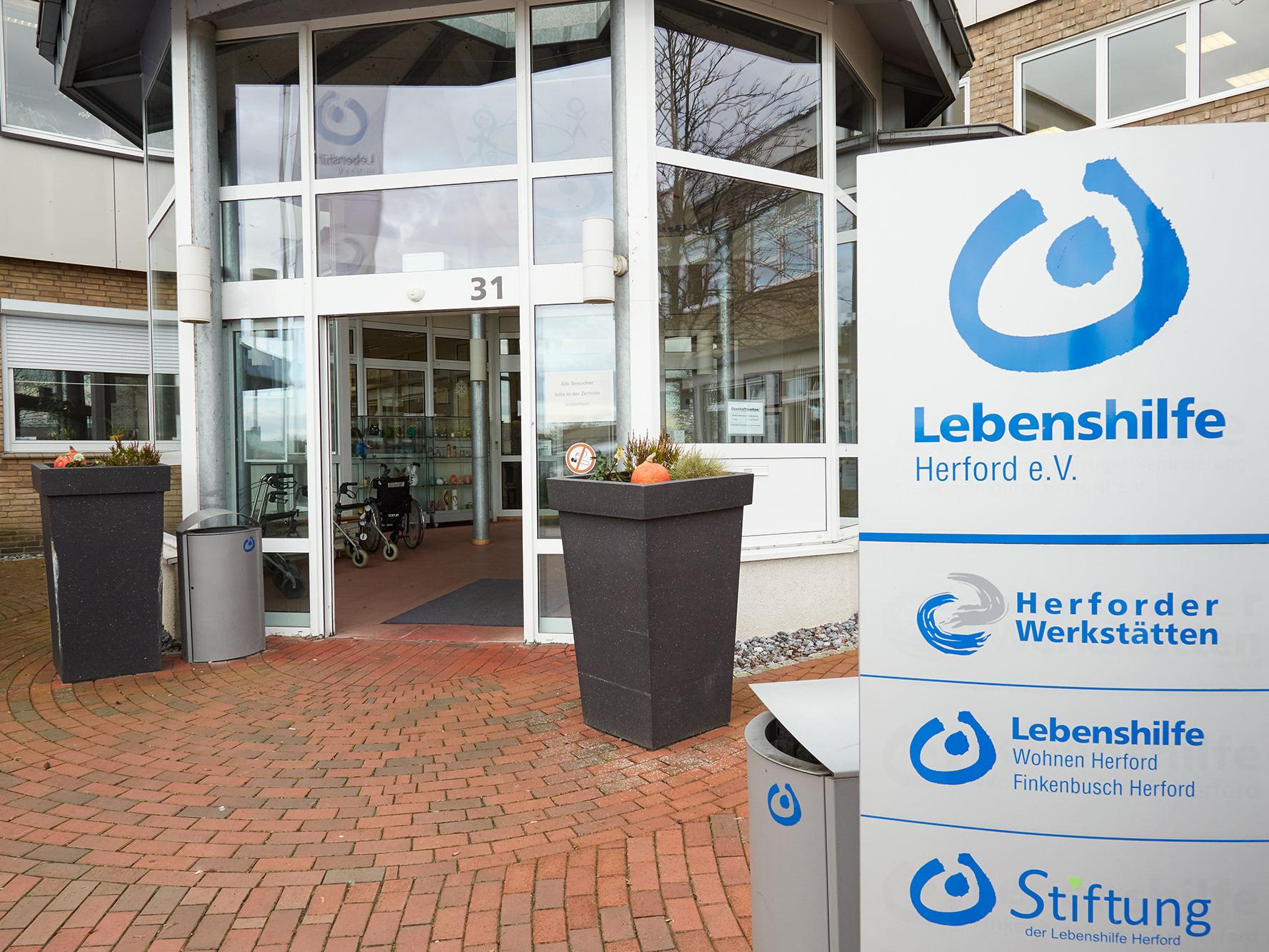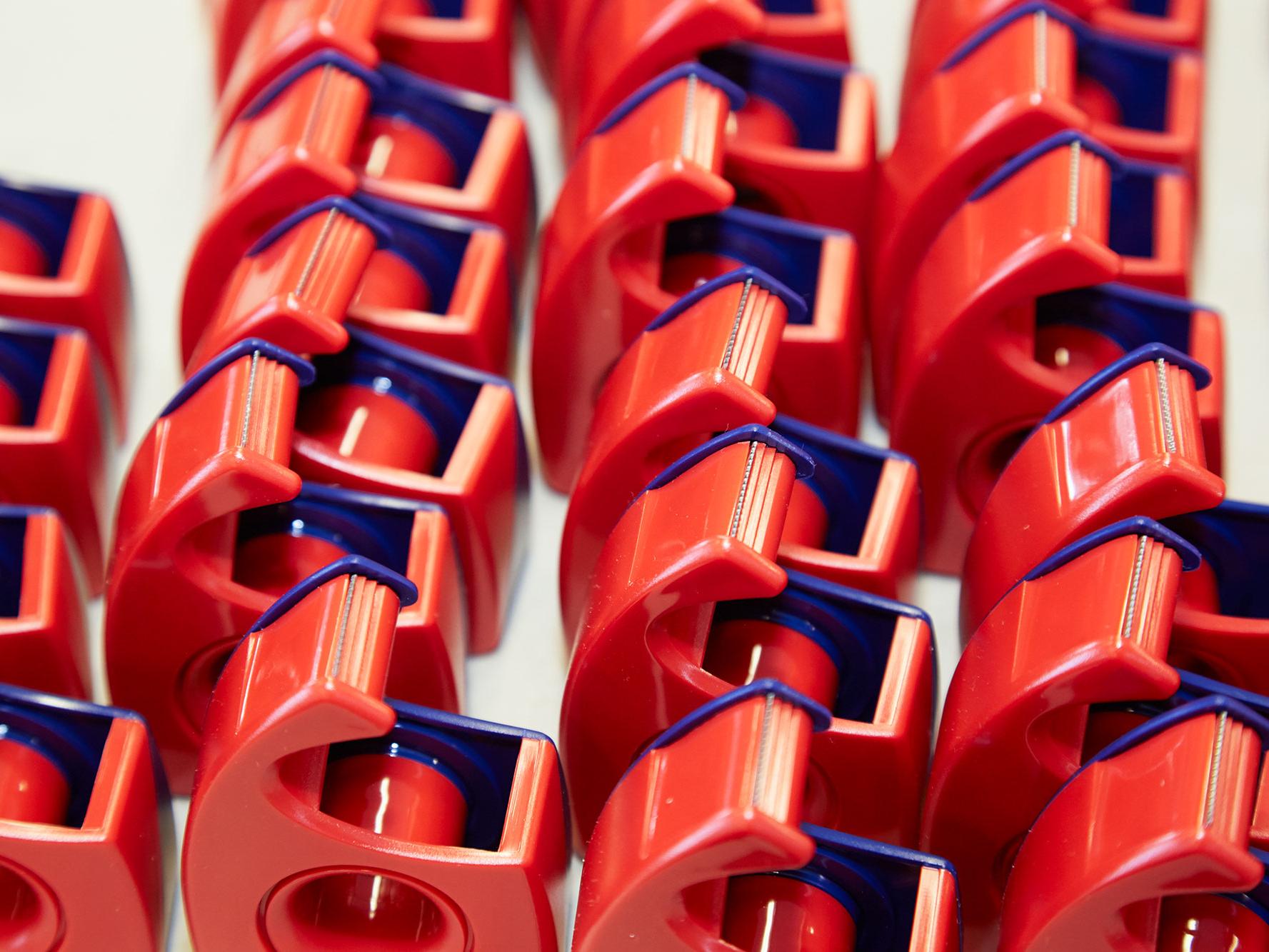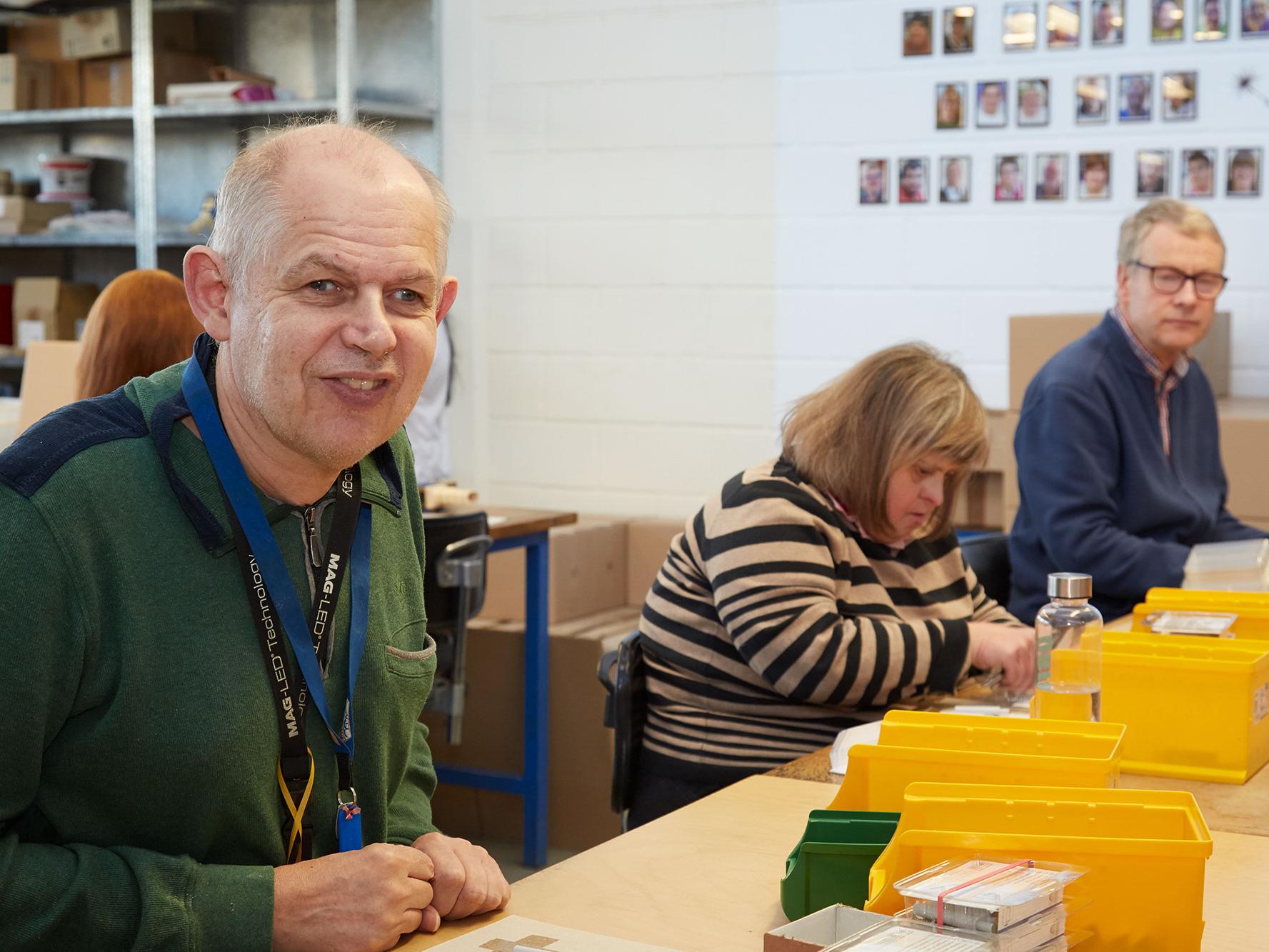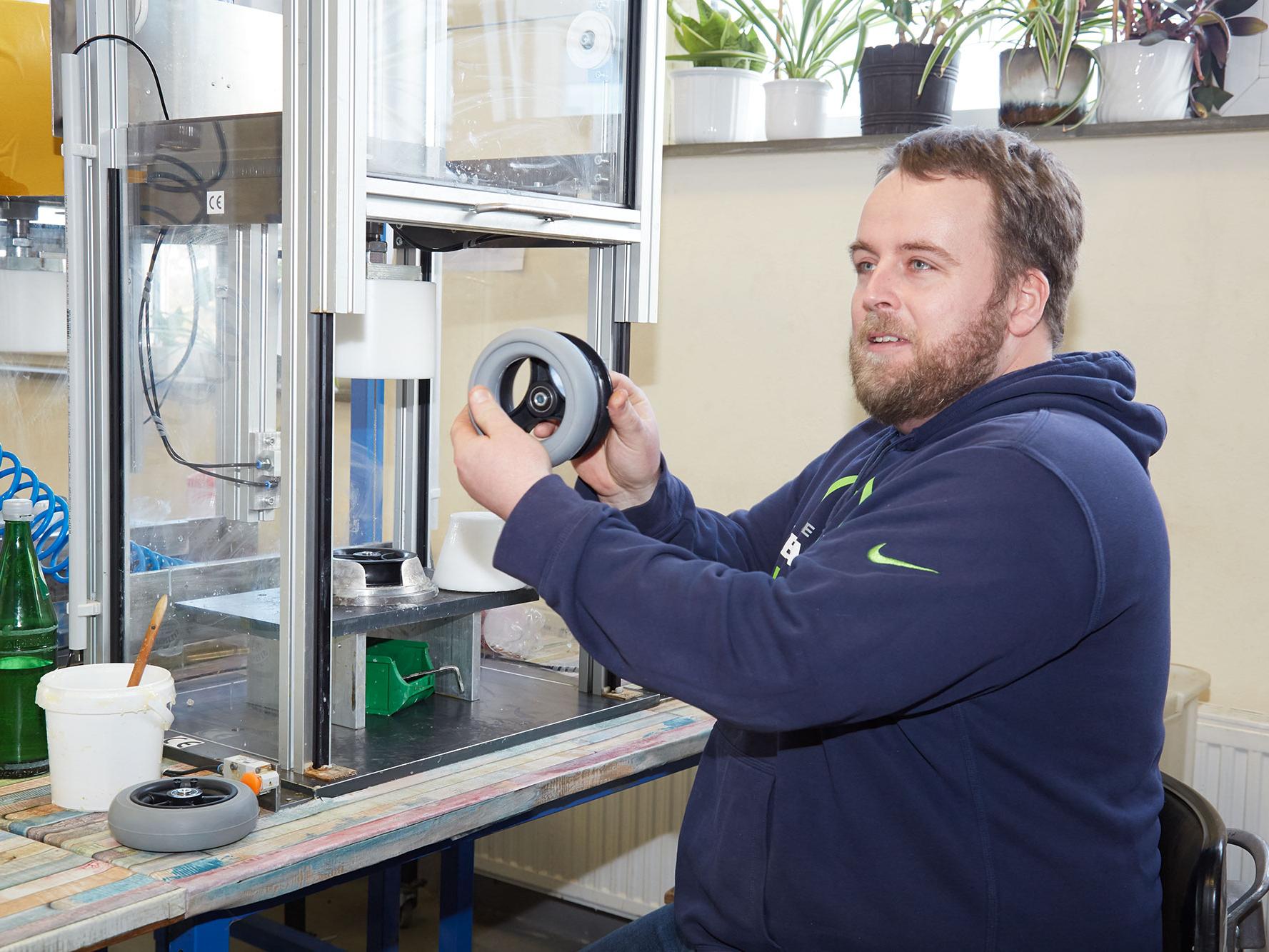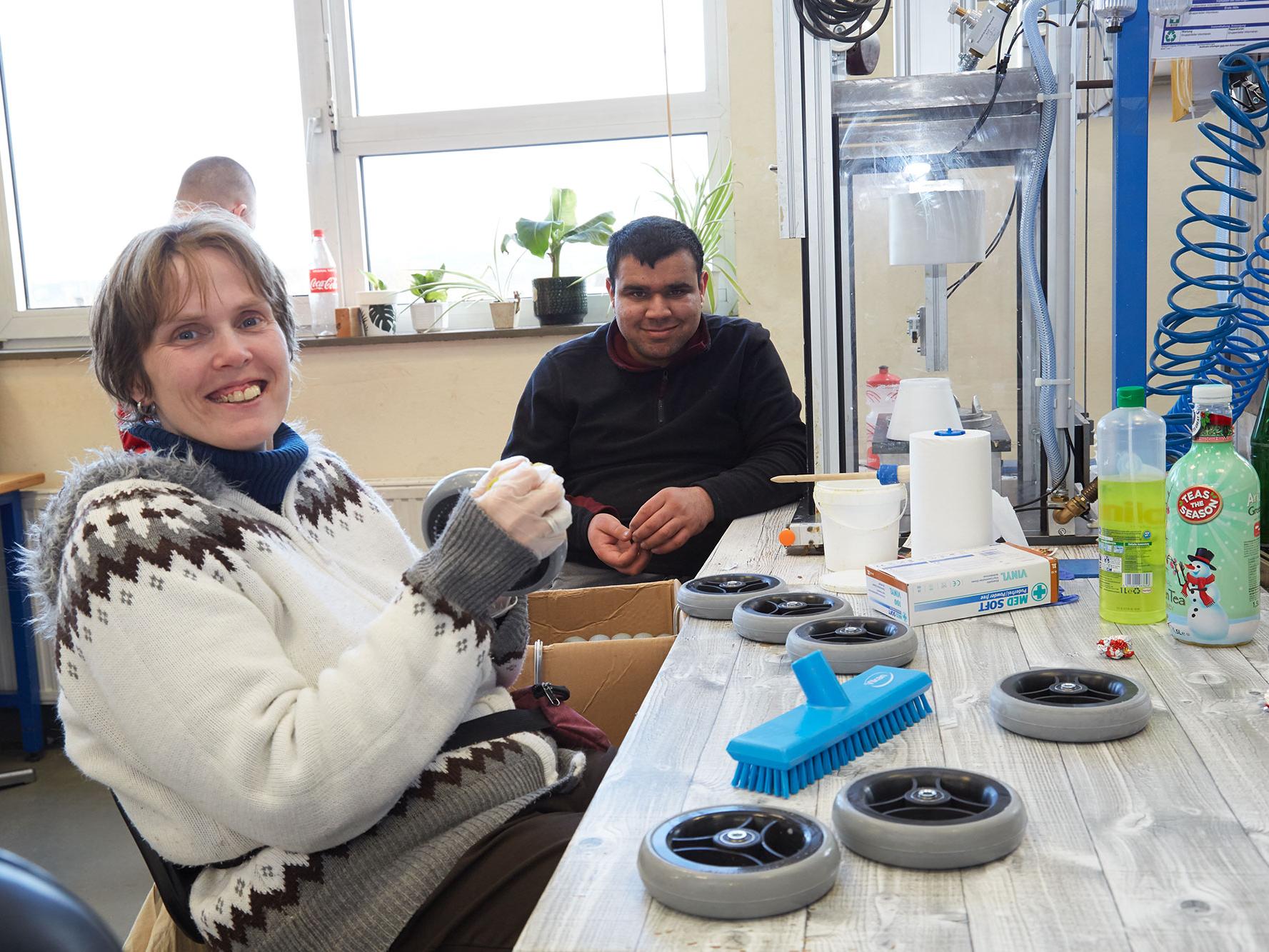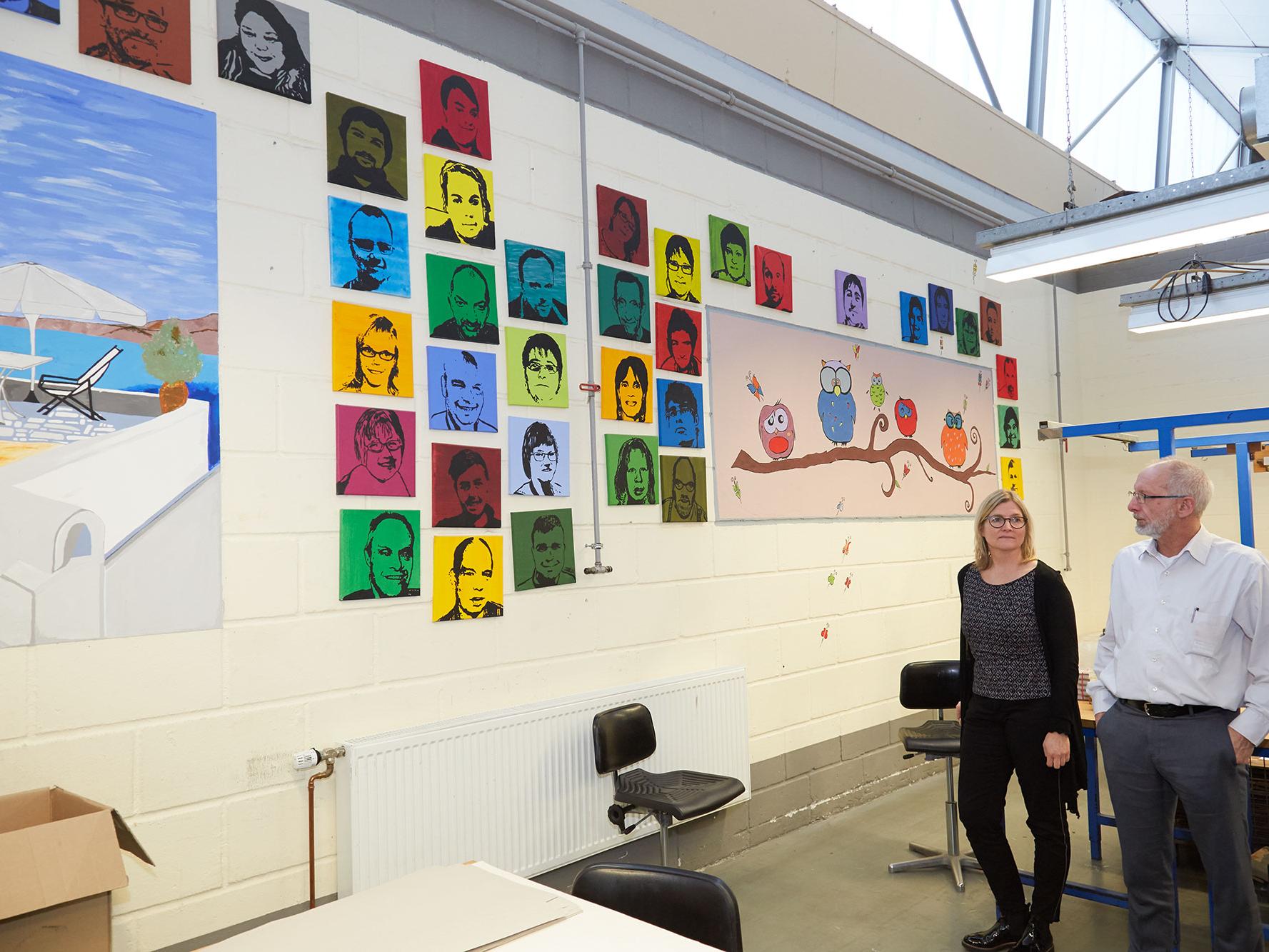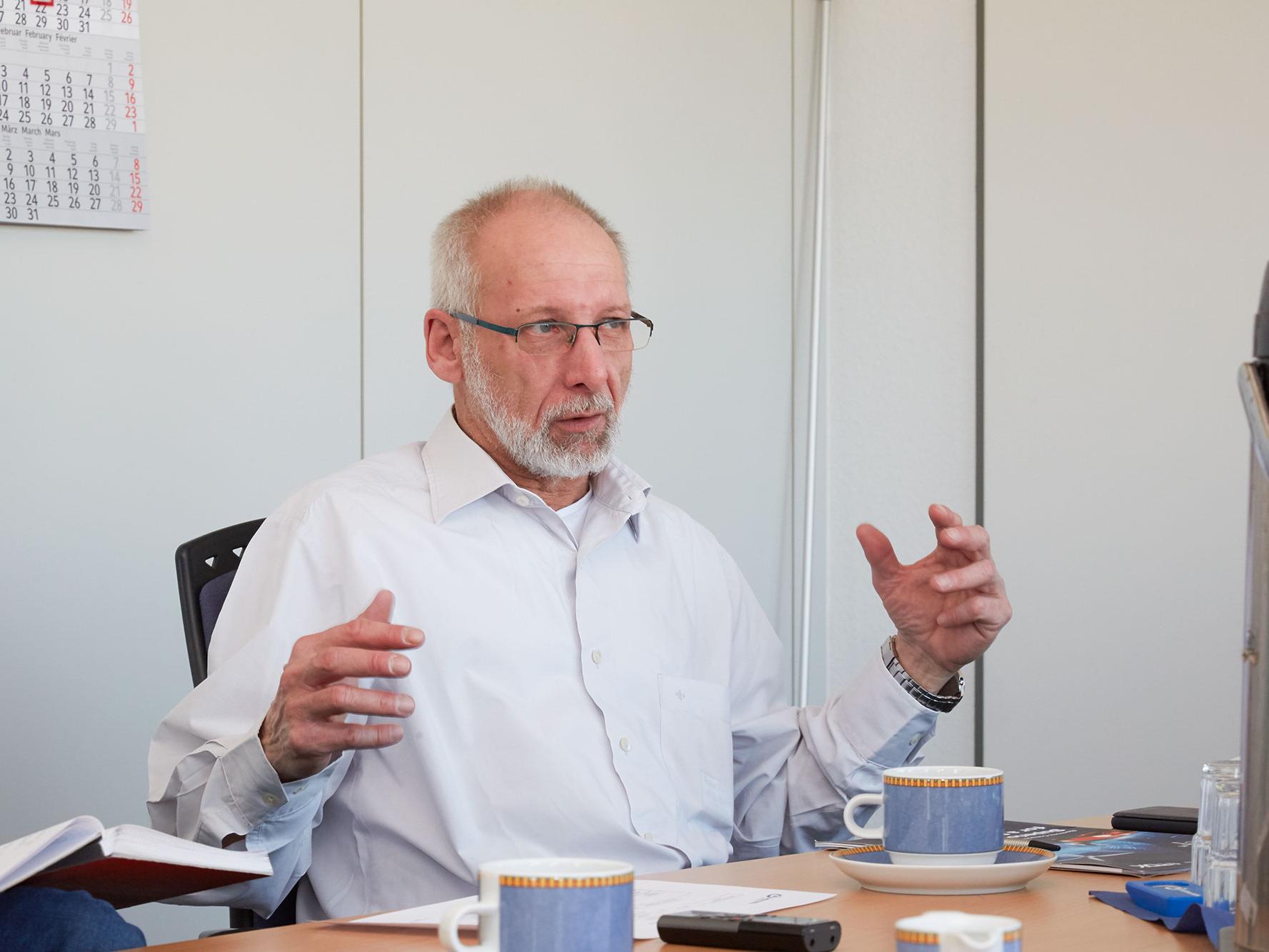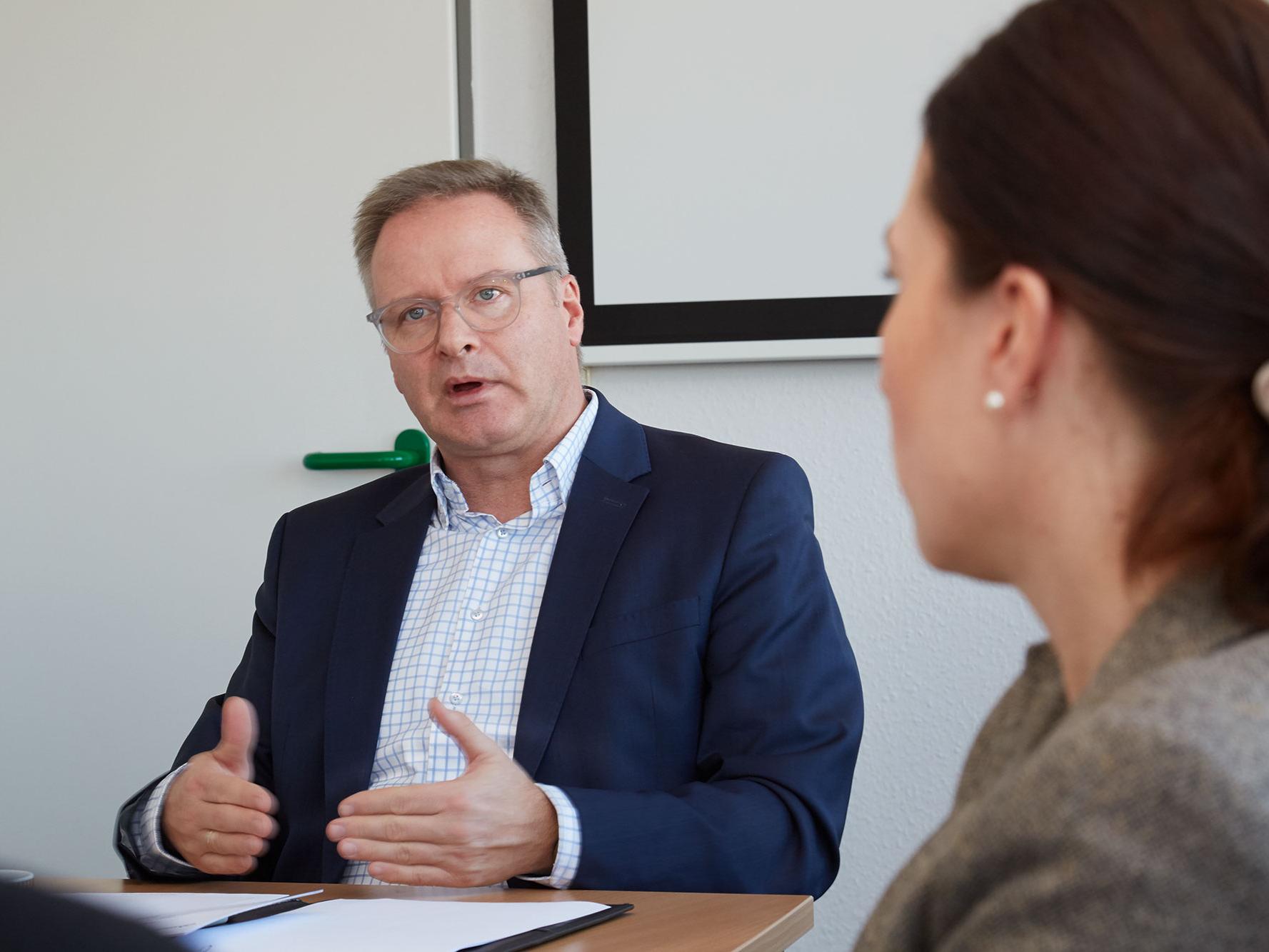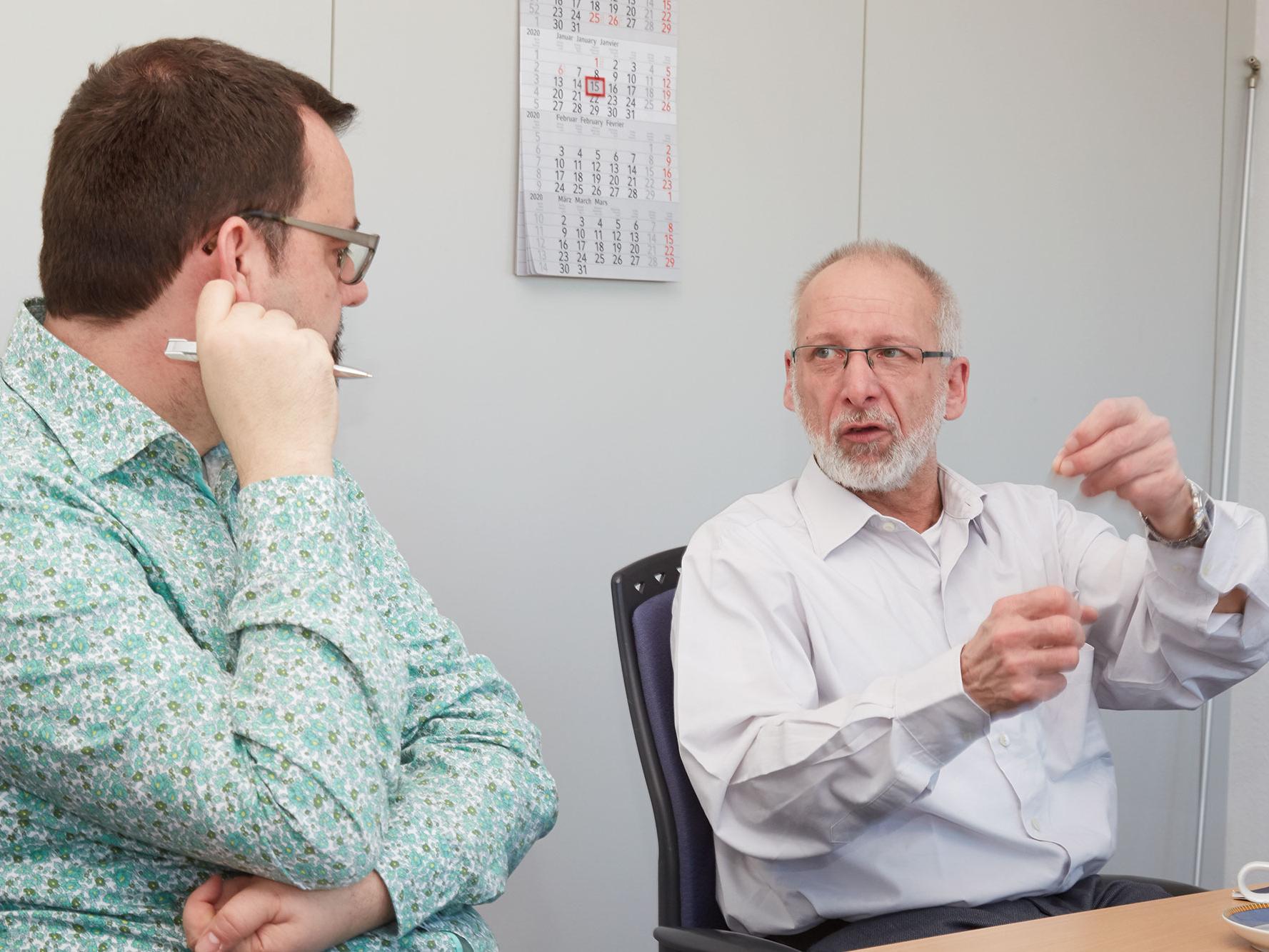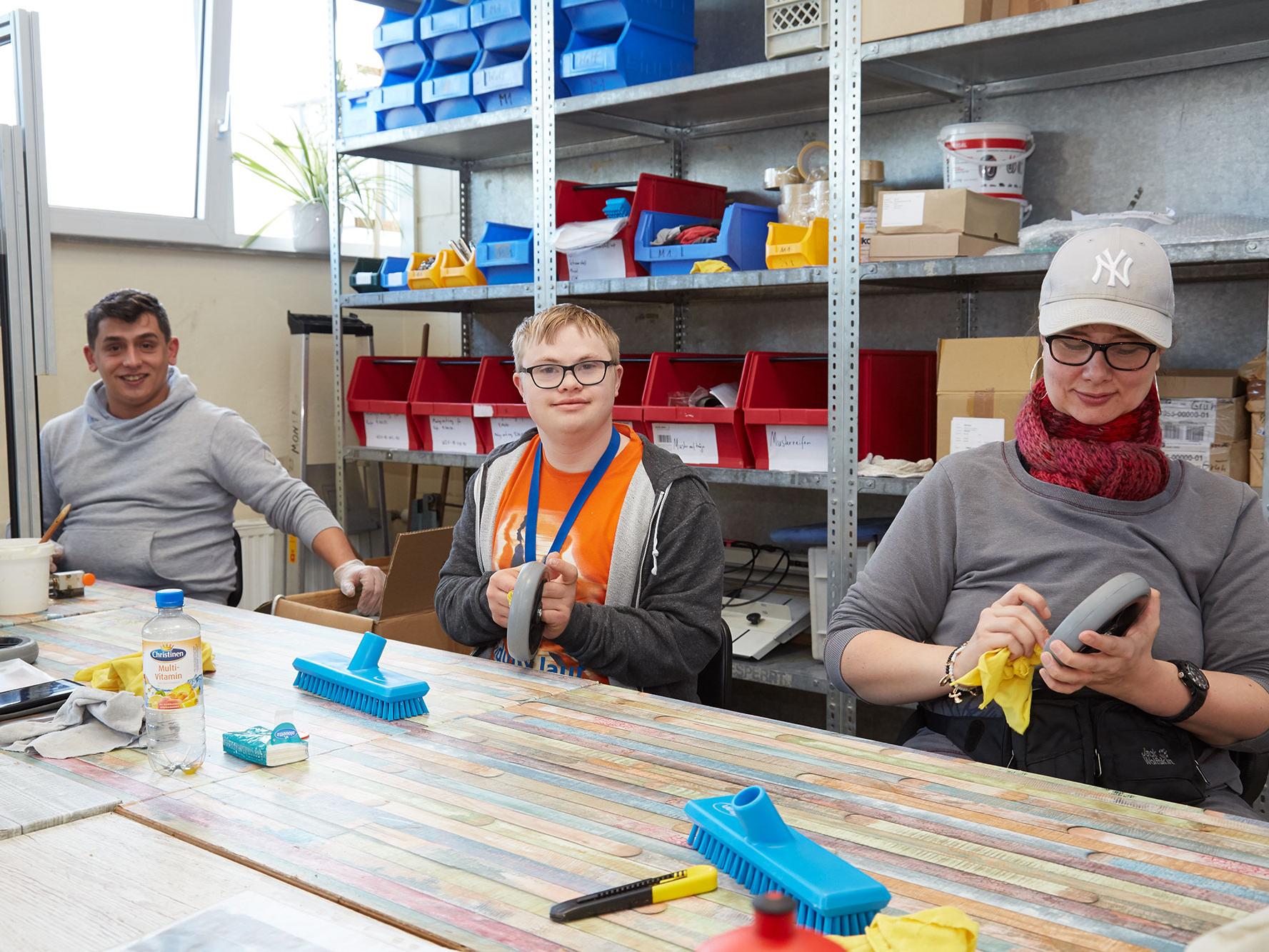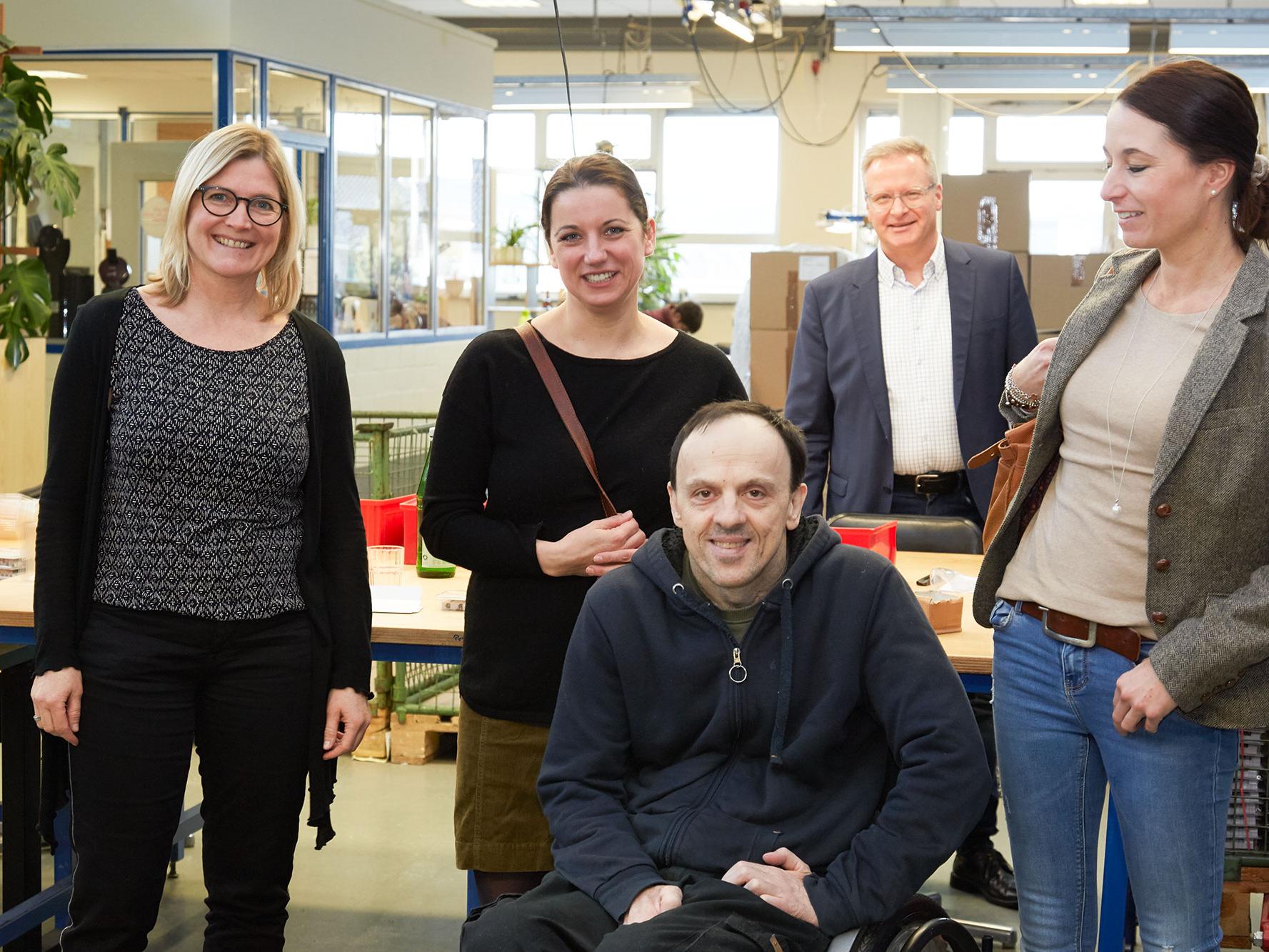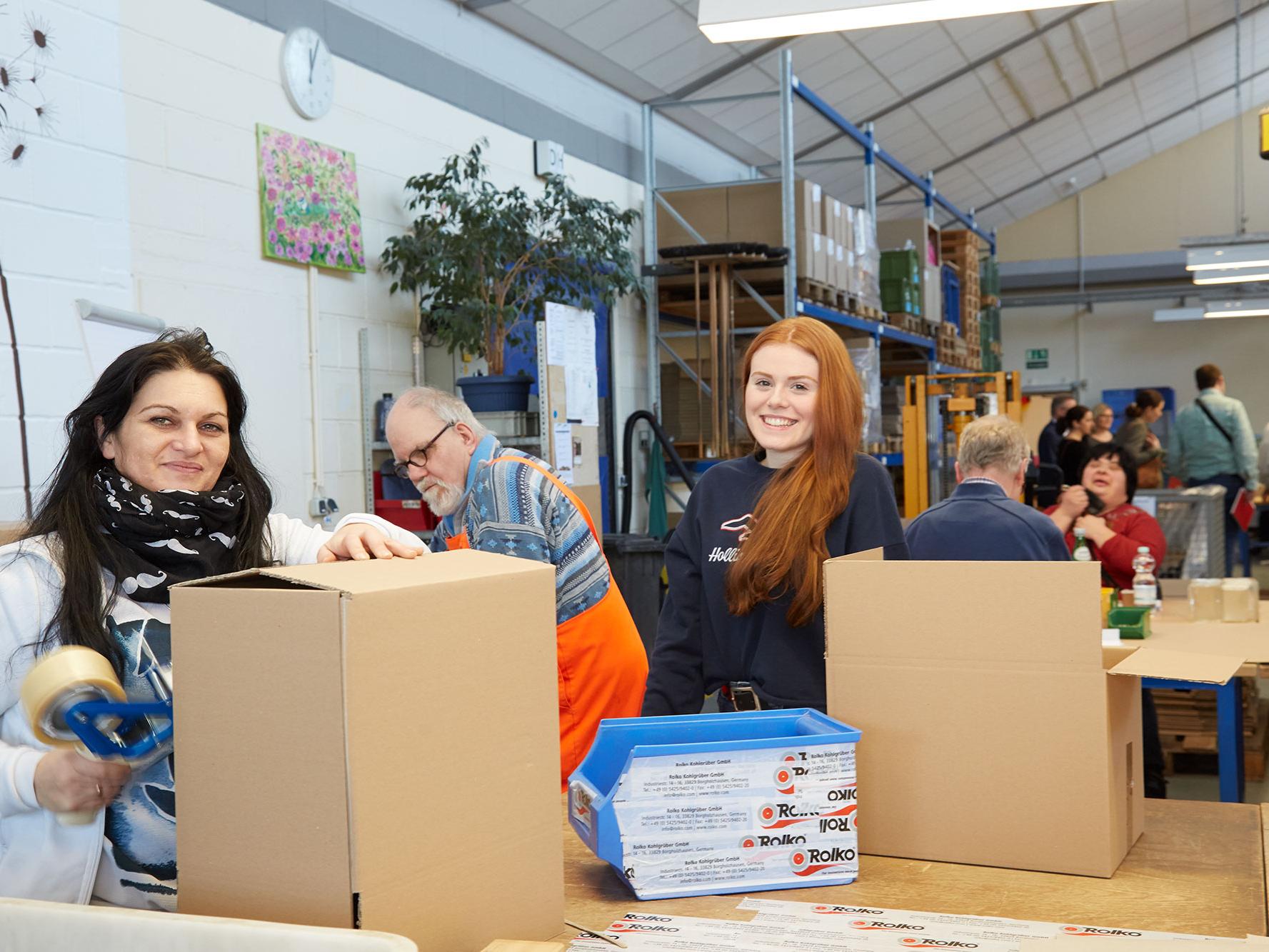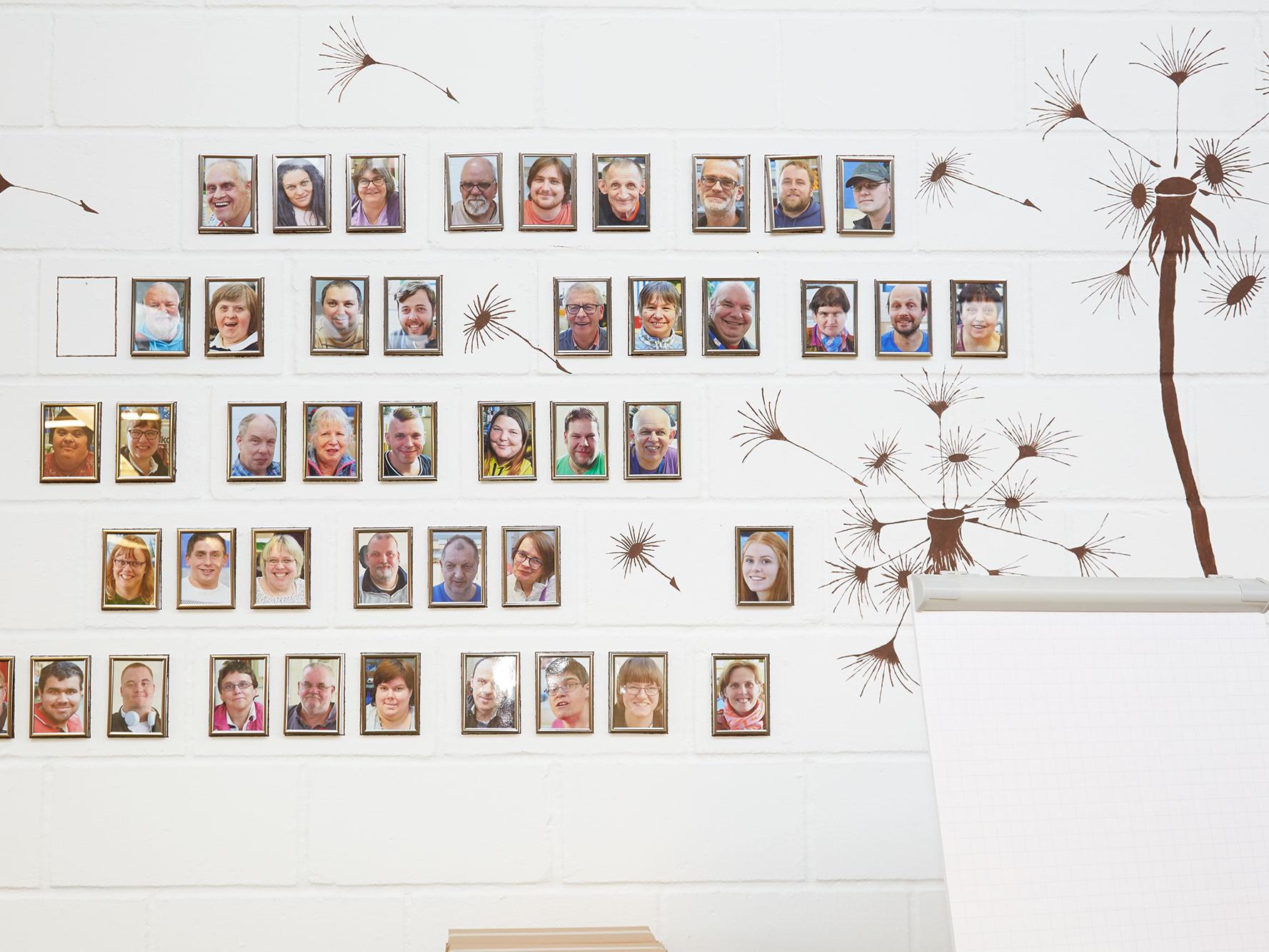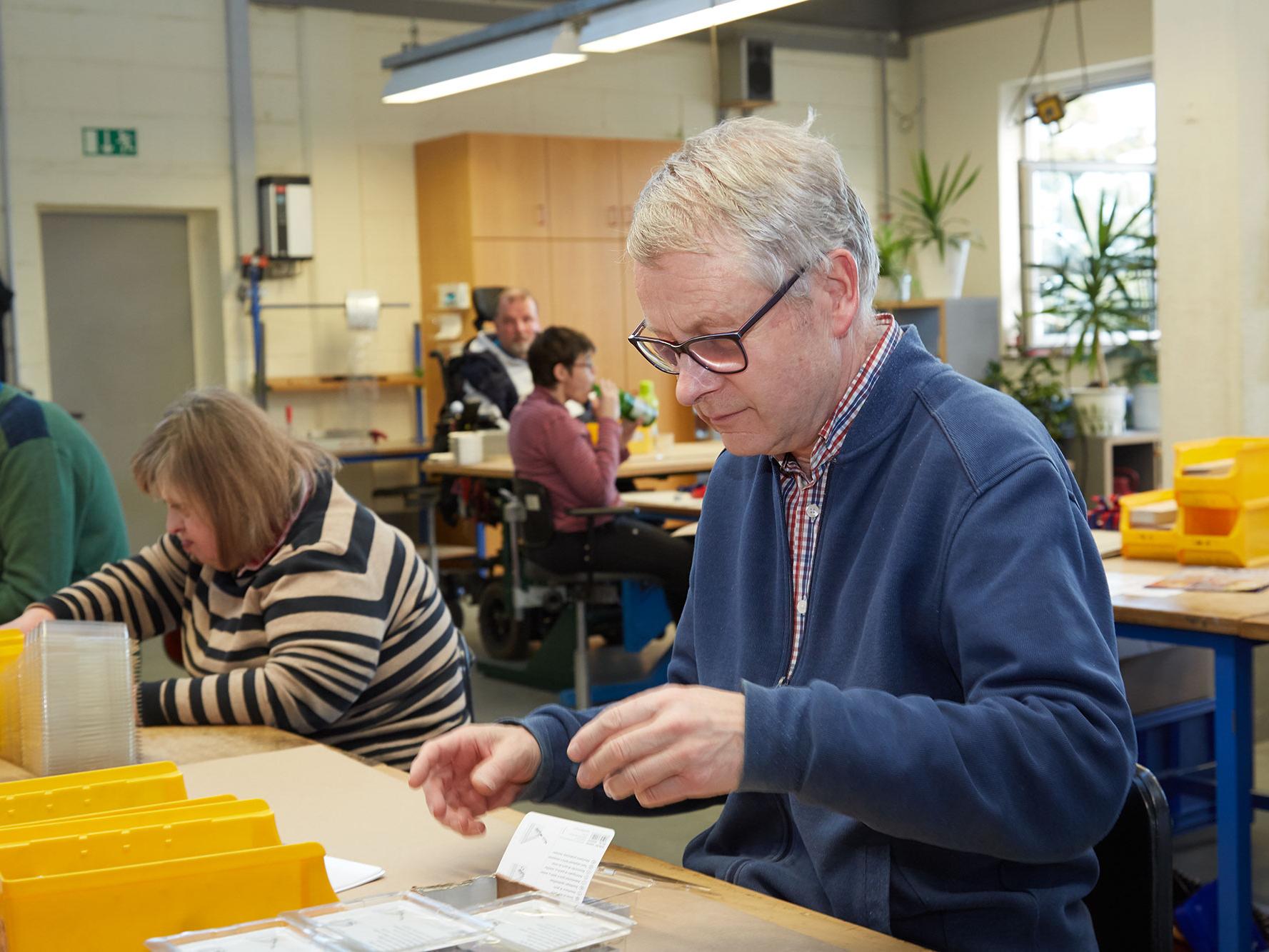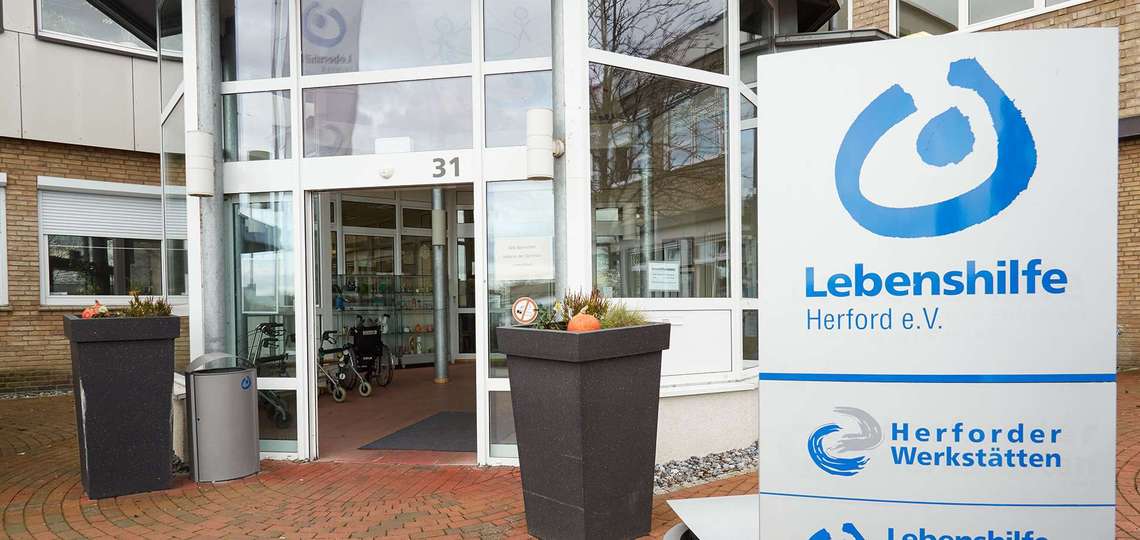
Work with love, pride and enthusiasm
In the workshops of Lebenshilfe Herford e. V., people are doing amazing things
Nowadays, anyone who picks up an everyday product such as a roll of adhesive tape in his or her hand hardly worries about its origin. At most, one thinks of assembly lines, robots and automated processes. But maybe there is a lot of love and pride in the adhesive tape. Because it was carefully inserted by hand into its tear-off dispenser – in the workshop of Lebenshilfe Herford e. V. on Ackerstraße, opposite the Stiegelmeyer administration building.
In the large, friendly assembly hall, employees sit in teams, concentrated and in a good mood at work. They count small assembly parts, put them into plastic bags and seal the bags with routine movements. Or they pull tires onto the wheels of walkers – with a modern machine that disability support worker Philipp Fischer and his team built themselves. Working with machines is fun for everyone. But the breaks are just as much fun – when the signal for lunch sounds, the room empties faster than the wind.
Participation in everyday life and a fulfilled life for people with mental disabilities and mental illness are the goals of Lebenshilfe Herford. The association has 300 members and runs an impressive variety of workshops, residences, counselling centres and much more. Managing director Stephan Steuernagel and workshop manager Wolfgang Rox brought along an outline of the facilities and offers, which would be a topic for many days of conversation.
650 employees in four workshops
Herforder Lebenshilfe runs four workshops, two for people with intellectual disabilities and two for people with mental illness. Around 650 employees work here. They are entitled to participate in work and are employed in a legal relationship similar to that of an employee. For example, they cannot be terminated as long as there is no danger to themselves or others, and are not bound by minimum wage regulations. 160 people live in Lebenshilfe residences, 45 other clients are looked after in outpatient assisted living. The Lebenshilfe employs 600 full-time staff, many of whom work part-time.
"No one is like the other", says Stephan Steuernagel about his employees. People with severe multiple disabilities, people with Down syndrome or autistic people work in the workshops. Some people require comprehensive care during working hours, while others can only work three hours a day due to chronic mental illness, but have considerable intellectual abilities and can operate computers and perform writing tasks.
Mirror of medical developments
The medical progress is reflected in the Lebenshilfe. For example, many more people with autism are now employed in the workshops than in the past, because the disease can be detected more often and the people can be helped, explains Mr. Steuernagel.
Finding the right job for everyone is a daily challenge – because the workshops usually do temporary jobs for industrial companies and have to reorganise themselves every few weeks or even days. Economic developments such as the weak economy last year have a direct impact on this. It has become more difficult to obtain orders, reports Wolfgang Rox.
Nevertheless, there is a rich offer of different activities. "The main industries are assembly and packaging," explains Mr. Rox. "About half of our 650 employees carry out assembly work, either manually or with hydraulic or pneumatic equipment. The packaging sector includes, for example, folding and gluing advertising displays or crosswise assembling cardboard to form compartments in which the medical industry delivers test tubes".
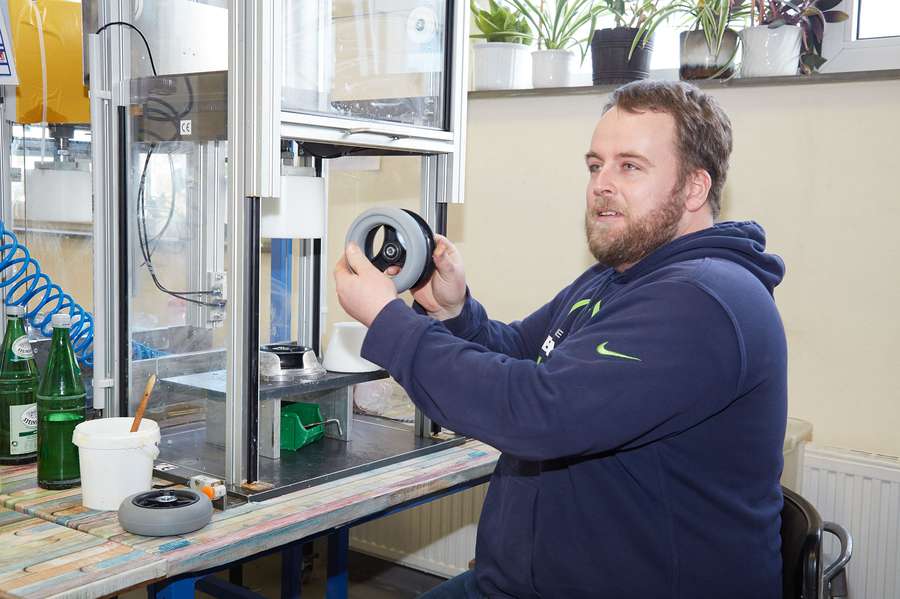
Work in the fresh air
There is also a wood department for carpentry and two metal workshops. Anyone who wants to do some physical exercise in the fresh air can work in the gardening and landscaping department. Hedge trimming, lawn mowing and car park cleaning for corporate customers are just as much part of the job as the maintenance of all 28 rainwater retention basins in Herford.
To advertise these services to customers, Lebenshilfe uses modern online marketing and trade fair presentations. Stiegelmeyer also maintains a long relationship with Lebenshilfe, not only in Herford but also at our wood production facility in Nordhausen.
Everyone agrees that Lebenshilfe is one of the most attractive employers in the care and health sector. Employees find it particularly positive that they are often allowed to accompany their clients for a very long time – some CVs of disabled people are literally linked to Lebenshilfe from birth to death. Philipp Fischer, who invented the walker tyre machine, loves his job: "There is so much enthusiasm here," he says.

